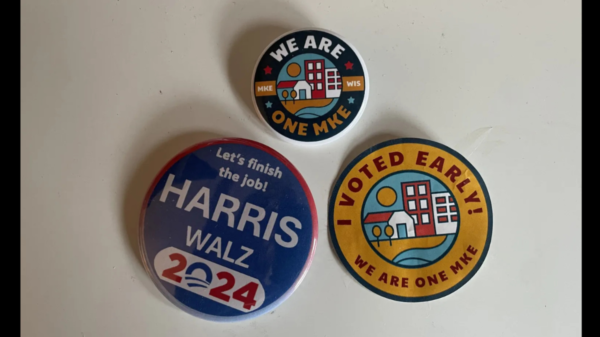
This article is part of our “This Diaspora Life” series, which shares stories – both reported and personal essays – that illuminate day-to-day acts of assimilation for Haitians across generations and geographies. To share your own, email submissions@haitiantimes.com for consideration.
NEW YORK — Gran Frè and Ti Frè, (Big Brother, Little Brother) aren’t related. They’re family because they were mothered by the same woman. In their Haitian home, kids raised together in a house are siblings, whether cousins, your grandfather’s newborn, nephews, nieces or neighborhood kids.
Ti Frè moved from Port-au-Prince to Santo Domingo, Dominican Republic, with his children. Considered a great accomplishment among many Haitians; nevertheless for Ti Frè, his goal is North America.
Ti Frè had a U.S. visa, which expired after Haitians were no longer able to renew it. He’s now stuck in the Dominican Republic.
On a recent, Ti Frè texts his brother, who left Port-au-Prince more than two decades ago.
“Call me,” he says. “It’s important.”
The call went like this.
Gran Frè: Yeah, man, what happened?
Ti Frè: I’m going to Canada boss (a term of affection amongst Haitians)!
Gran Frè: Really?!
Ti Frè: I met this girl from Montréal. She’s gonna get me papers and everything.
Gran Frè: That’s good bro! You met her in Santo Domingo?
Ti Frè: Yeah, I’ve been talking to her on Facebook. Karen, that’s her name. She put me in touch with this other guy to get my papers.
Gran Frè: Oh yeah? Ok…
He sends photos of the woman and their chat to Gran Frè, who laughs on the phone. The picture was of a long, dark-haired, seemingly well-to-do and seemingly well-educated, beautiful woman.
Gran Frè [A known player]:
“Ahhhhh, ou enraje, pitit (Yo, you’re crazy, brother)! I have everything a girl like that would want: the money, the style and she’d still be a hard catch for me. Think about it man. Why would she be going for you, trapped in DR? Did she ask you to send money?
Ti Frè: A couple installments of 100 dollars. I have to send it to an account in Europe, and it’ll be wired over to Canada.
Gran Frè keeps laughing.
The chat, written in French, contained a message from the Canadian embassy.
“CONGRATULATIONS ”
The Canadian embassy has accepted your visa request……. ALL that’s left to do is pay the fee allowing us to commence with your paperwork…. The money will be sent to my representative in charge of collecting the fees…. We await your response.”
Gran Frè: Frè’m (my brother)…. it’s a scam.
Laughter broke the silence that followed.
Ti Frè: You see, man, this is why it’s good to have people smarter than you to call.
Ti Frè never met or spoke to the woman, whose pictures are likely stolen off of someone’s account.
Gran Frè: Very true, but it’s not about intelligence. A scam can catch anyone and give them hope at their most vulnerable.
Ti Frè is not unintelligent. He is desperate, therefore, like anyone else in his situation, susceptible to traps. With so many Haitians hungering to get to America, those without Big Brothers to guide them are falling for deals too-good-to-be-true.
Immigration scams are very common. They come in all forms and through various channels, especially online. Scams targeting Haitians applying for parole are among many fraudulent schemes that have been reported, according to the US Citizenship and Immigration Service (USCIS).
- To report a potential immigration or other type of scam in the U.S., contact the Federal Trade Commission (FTC). You can file a report through ReportFraud.ftc.gov or call the agency at 1-877-382-4357 (FTC-HELP). Follow these agencies’ guidance to detect and avoid potential scammers.
- To report a potential immigration scam in the U.S., you can send suspicious messages to. If you receive a suspicious email, forward it to USCIS.Webmaster@uscis.dhs.gov.









You must be logged in to post a comment Login